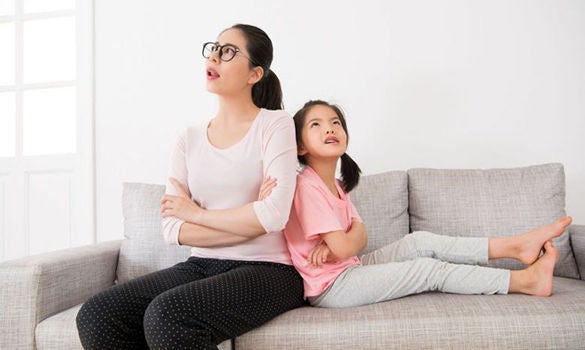
Can my child get HPV from the vaccine? Is it safe? Are there side effects? PHOTO: ISTOCK
Why does the vaccine matter?
Since April this year, the Health Promotion Board has rolled out a national school-based human papillomavirus (HPV) vaccination programme. But what exactly does the HPV vaccination do and why is it important for our children?
Adjunct Associate Professor Timothy Lim, Head and Senior Consultant of the Department of Gynaecological Oncology at KK Women’s and Children’s Hospital, as well as Chairman of the Singapore Cancer Society Women’s Gynaecological Cancer Awareness Committee answers some pressing questions.
Q: My daughter is 13 years old this year and a friend told me that this might be a good time for her to get the human papillomavirus (HPV) vaccination. What is HPV and why is the vaccine important during this period?
A: The human papillomavirus (HPV) is a common virus that can be spread through skin-to-skin contact such as sexual activity. HPV infections mostly have little impact on our health as our immune system is usually able to naturally clear these infections.
Although the HPV virus is mostly harmless, it is important to note that out of over 100 strains, at least 14 of these HPV strains can cause long-lasting infections that can lead to cervical cancer.
The vaccination is most effective before any sexual activity has occurred.
DOES THE VACCINE WORK? HOW EFFECTIVE IS IT?
The HPV vaccine is effective in preventing cervical cancer and covers about 70 to 90 per cent of the high-risk HPV strains.
WHAT ARE THE TYPES OF HPV VACCINES AVAILABLE AND WHAT DO THEY PROTECT AGAINST?
There are three vaccines — Cervarix, Gardasil and Gardasil 9.
Currently, HPV vaccine studies show that the vaccine provides long-lasting protection against high-risk HPV strains — particularly HPV 16 and HPV 18 — for at least 10 years.
The HPV vaccine is licensed to be used in Singapore for both boys and girls from ages of nine to 26 years old. Singapore boys are licensed to have Gardasil or Gardasil 9 (not Cervarix) for protection against genital warts, premalignant disease of anal canal and anal cancer.
DOES THIS MEAN THAT HPV AFFECTS MEN TOO? SHOULD MY SON GET THE HPV VACCINATION?
HPV is prevalent among both men and women. About 80 per cent of people will get an HPV infection in their lifetime. Boys and young men could also consider vaccination. The Gardasil vaccines are Food and Drug Administration (FDA)-approved for males hence they are gender-neutral vaccines.
CAN MY CHILD GET HPV FROM THE VACCINE? IS IT SAFE? ARE THERE SIDE EFFECTS?
The HPV vaccine does not contain the HPV virus. It is made from proteins that only resemble the external look of high-risk HPV strains. The body triggers the production of antibodies in response to the vaccine, offering protection from future infections caused by high-risk HPV strains.
There have not been any direct association with adverse or fatal effects and the most common side-effect is pain at the injection site. Other side effects include redness, mild swelling, and headache, which are transient.
WILL THIS VACCINE OFFER FOOLPROOF PROTECTION AGAINST CERVICAL CANCER?
There is no vaccine today that can prevent all types of HPV strains that can cause cervical cancer.
The vaccine is effective for at least 10 years but doctors believe it will provide more long-lasting protection.
However, cervical cancer screening should be performed regularly regardless of whether you have had the vaccine. The Pap test should be done every three years (for women aged 25 to 29 years old) and the HPV test every five years (for women aged 30 years old and above).
IS THE VACCINE STILL AN OPTION FOR PEOPLE WHO ARE ALREADY SEXUALLY ACTIVE AND ABOVE THE AGE OF 26?
The benefits of this vaccination are maximised when given before you engage in any sexual activity. However, you can still benefit from it even if you have ever had sex as you may not have been exposed to the high-risk strains yet.
Since October 2018, Gardasil and Gardasil 9 are also approved by the FDA to be given to women and men from 27 to 45 years old. It is advisable to speak to your doctor about getting the HPV vaccination.
ABOUT THE SCHOOL-BASED VACCINATION PROGRAMME
More than 70 countries, including United Kingdom, Brunei and Malaysia have included the HPV vaccine in their national immunisation programme.
This year, Singapore has introduced a national school-based HPV vaccination programme.
Who are eligible for the school-based vaccination programme?
Current and future cohorts of Secondary 1 female students can opt in to receive a free vaccination to protect against cervical cancer.
In 2019, a one-time catch-up programme has commenced for other levels of secondary school female students.
How do I register my daughter for the programme?
Parents will receive a letter with information on when the vaccine will be conducted in their daughters’ schools, as well as a fact sheet and pamphlet on the HPV vaccination.
Parents will be asked to log in to Health Promotion Board’s online portal https://childconsent.hpb.gov.sg using their SingPass to give their consent.
About the Singapore Cancer Society HPV vaccination programme
The Singapore Cancer Society provides HPV vaccination at no cost to eligible females aged nine to 13 years old with a valid CHAS card.
For more information on HPV vaccination, you may visit the Singapore Cancer Society’s website.













 Get it on Google Play
Get it on Google Play